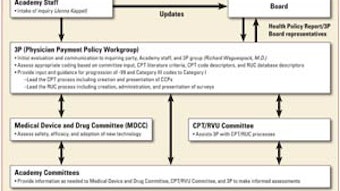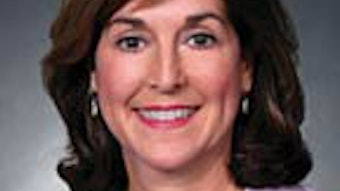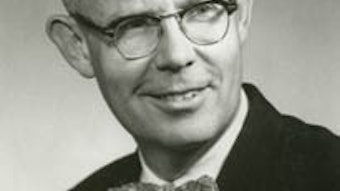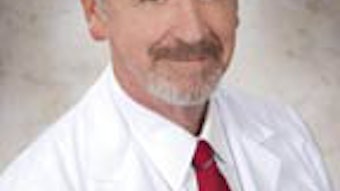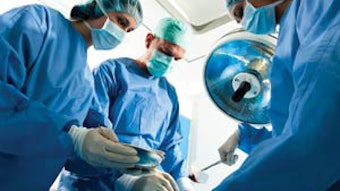Do I Need a Coach?
Rahul K. Shah, MD George Washington University School of Medicine, Children’s National Medical Center, Washington, DC I was at my daughter’s tennis lesson this past weekend when something caught my eye. A ninth grader came to the coach and said, “Last week, I was off. I could not hit the backhand accurately.” The coach took him on the court and in four minutes the stroke was corrected. They practiced the shot repeatedly for the remaining 56 minutes. That is a great coach. I have often wondered how useful the cadre of coaches that surround professional athletes really are—there is a swing coach, a physical trainer, a caddie, a sports psychologist, etc. However, watching this four-minute transition in this young competitive tennis player sealed the deal for me. After witnessing that moment, I immediately recalled the astute, introspective article by Atul Gawande, MD,1 a frequent contributor to The New Yorker. In the article he makes the case for surgical coaching and describes the experience of having a senior surgeon shadow him in the operating room, making suggestions to improve his surgical performance. It is an interesting concept; however, it is somewhat limited in that the model suggested by Dr. Gawande assumes there are senior surgeons who want to step back from the busy surgical lifestyle to coach or mentor other surgeons. I am sure we all have personal senior mentors who would be thrilled to help us on a one-off basis to improve our surgical skills. However excited I was by reading the article, I was somewhat skeptical that such individuals exist in sheer quantity to coach all of the surgeons who would want such coaching. Indeed, I wondered what makes a great coach. As noted earlier, unless a surgeon has a strong personal relationship with such an individual, the availability and trust would be difficult to find. If we extrapolate from other high-performing industries that depend on individual performance, such as sports, themes emerge. For example, the best coaches are not necessarily the ones who have won all the championships or awards, such as the most valuable player. One can think of almost any sport and understand this. Hence, perhaps surgery, and specifically otolaryngology, needs to consider what the attributes of a superb coach are and consider ways to train or recruit people to provide similar services. Like many hospitals, our organization is constantly trying to improve physician-patient relationships, and a metric we use is our patient satisfaction score. I received mine a couple of months ago and felt great—my patient satisfaction score was in the low 80 percent. Once my arrogance subsided, I reviewed the scores for all the physicians in the hospital and found three surgeons who were two standard deviations away from the mean—with scores better than 95 percent. I wondered if I could score higher after shadowing them. You can imagine the fleeting awkwardness when I, as an associate professor, shadowed my friends (also mid-level surgeons) in general surgery, neurosurgery, and orthopedics. I tried to put away my medical interest in the pathology of the patient and the treatment decisions being made and focused on the surgeon’s interactions with the patient. After a while, a few commonalities surfaced: there were no distractions during the office sessions (they did not check emails or their cell-phones): the only priority was the patient and his or her issues; they maintained complete eye-contact during the entire visit (even with me hovering around them); and they took no notes (they scribbled their thoughts later after the visit and dictated during breaks, lunch, or after the office session finished). Certainly, that morning was a great use of my time, and the question remains: “Will it pay off in terms of improving my ability to deliver care?” I am excited about the concept of surgical coaching and what that holds for our patients and our specialty in the coming years and will begin writing about this topic more frequently. Reference Gawande, A. What Makes Top Performers Better? http://www.TheNewYorker.com/reporting/2011/10/03/111003fa_fact_gawande.
Rahul K. Shah, MD
George Washington University School of Medicine, Children’s National Medical Center, Washington, DC
I was at my daughter’s tennis lesson this past weekend when something caught my eye. A ninth grader came to the coach and said, “Last week, I was off. I could not hit the backhand accurately.” The coach took him on the court and in four minutes the stroke was corrected. They practiced the shot repeatedly for the remaining 56 minutes. That is a great coach.
I have often wondered how useful the cadre of coaches that surround professional athletes really are—there is a swing coach, a physical trainer, a caddie, a sports psychologist, etc. However, watching this four-minute transition in this young competitive tennis player sealed the deal for me.
After witnessing that moment, I immediately recalled the astute, introspective article by Atul Gawande, MD,1 a frequent contributor to The New Yorker. In the article he makes the case for surgical coaching and describes the experience of having a senior surgeon shadow him in the operating room, making suggestions to improve his surgical performance. It is an interesting concept; however, it is somewhat limited in that the model suggested by Dr. Gawande assumes there are senior surgeons who want to step back from the busy surgical lifestyle to coach or mentor other surgeons. I am sure we all have personal senior mentors who would be thrilled to help us on a one-off basis to improve our surgical skills. However excited I was by reading the article, I was somewhat skeptical that such individuals exist in sheer quantity to coach all of the surgeons who would want such coaching. Indeed, I wondered what makes a great coach. As noted earlier, unless a surgeon has a strong personal relationship with such an individual, the availability and trust would be difficult to find.
If we extrapolate from other high-performing industries that depend on individual performance, such as sports, themes emerge. For example, the best coaches are not necessarily the ones who have won all the championships or awards, such as the most valuable player. One can think of almost any sport and understand this.
Hence, perhaps surgery, and specifically otolaryngology, needs to consider what the attributes of a superb coach are and consider ways to train or recruit people to provide similar services.
Like many hospitals, our organization is constantly trying to improve physician-patient relationships, and a metric we use is our patient satisfaction score. I received mine a couple of months ago and felt great—my patient satisfaction score was in the low 80 percent. Once my arrogance subsided, I reviewed the scores for all the physicians in the hospital and found three surgeons who were two standard deviations away from the mean—with scores better than 95 percent. I wondered if I could score higher after shadowing them.
You can imagine the fleeting awkwardness when I, as an associate professor, shadowed my friends (also mid-level surgeons) in general surgery, neurosurgery, and orthopedics. I tried to put away my medical interest in the pathology of the patient and the treatment decisions being made and focused on the surgeon’s interactions with the patient. After a while, a few commonalities surfaced: there were no distractions during the office sessions (they did not check emails or their cell-phones): the only priority was the patient and his or her issues; they maintained complete eye-contact during the entire visit (even with me hovering around them); and they took no notes (they scribbled their thoughts later after the visit and dictated during breaks, lunch, or after the office session finished). Certainly, that morning was a great use of my time, and the question remains: “Will it pay off in terms of improving my ability to deliver care?”
I am excited about the concept of surgical coaching and what that holds for our patients and our specialty in the coming years and will begin writing about this topic more frequently.
Reference
Gawande, A. What Makes Top Performers Better? http://www.TheNewYorker.com/reporting/2011/10/03/111003fa_fact_gawande.
